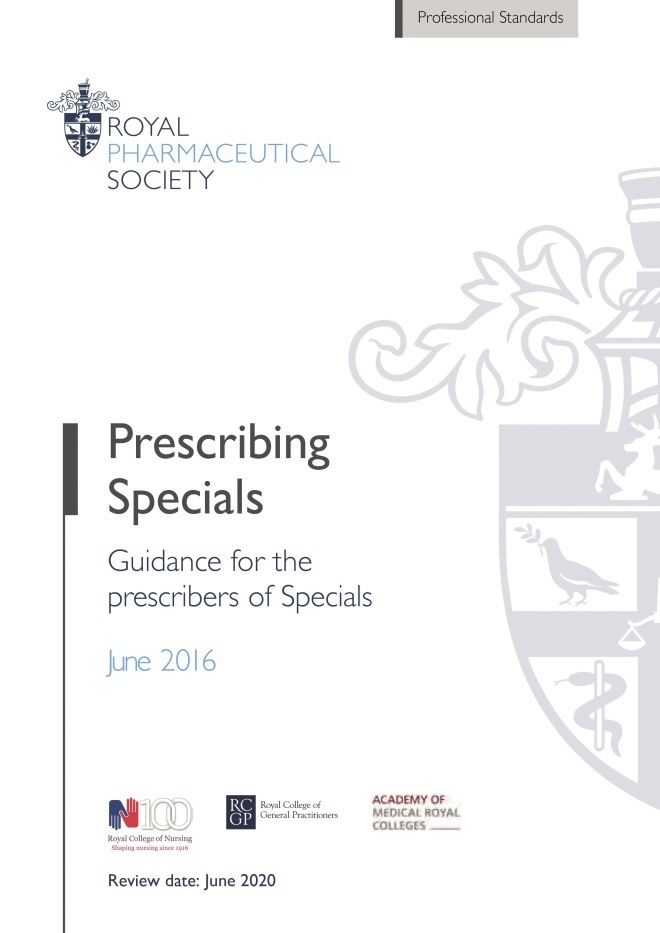
Shutterstock.com
The Royal Pharmaceutical Society (RPS) has published updated professional guidance for the prescribers of pharmaceutical specials, a category of unlicensed medicines manufactured or procured specifically to meet the special clinical needs of an individual patient.
The guidance, which has been endorsed by the Royal College of GPs, the Academy of Medical Royal Colleges and the Royal College of Nursing, is an update of the resource first published in 2011 by the National Prescribing Centre. The National Prescribing Centre has since become part of the National Institute for Health and Care Excellence (NICE) and the RPS now has an agreement with NICE that the Society will take on the role of maintaining the guidance and updating it at least every four years.
The updated guidance reflects changes in clinical practice and in regulation, including guidance issued by the Medicines and Healthcare products Regulatory Agency. To reflect the fact that decisions around prescribing of specials rely heavily on professional judgement and the individual patient, the guidance is based around five principles, illustrated by case studies, that can be used to guide prescribing decisions. The five principles are: to establish the optimal treatment for the patient; to understand the patient’s experience and make a shared decision; to identify medicines and preparations; to monitor and review; and to ensure effective prescribing governance.

Source: Royal Pharmaceutical Society
The guidance, which has been endorsed by the Royal College of GPs, the Academy of Medical Royal Colleges and the Royal College of Nursing, is an update of the resource first published in 2011 by the National Prescribing Centre.
While focusing on specials, the guidance is designed to be broadly applicable to the prescribing of other unlicensed medicines.
To access the guidance for the prescribers of specials as well as professional guidance for the procurement and supply of pharmaceutical specials, which was updated in December 2015, visit the RPS website.
You may also be interested in
Long service of members

Membership fees 2022
